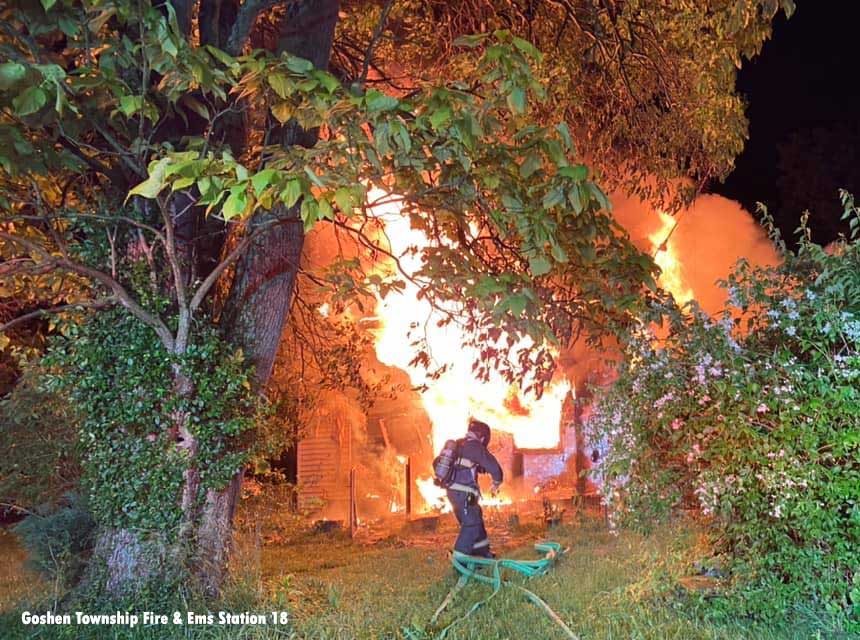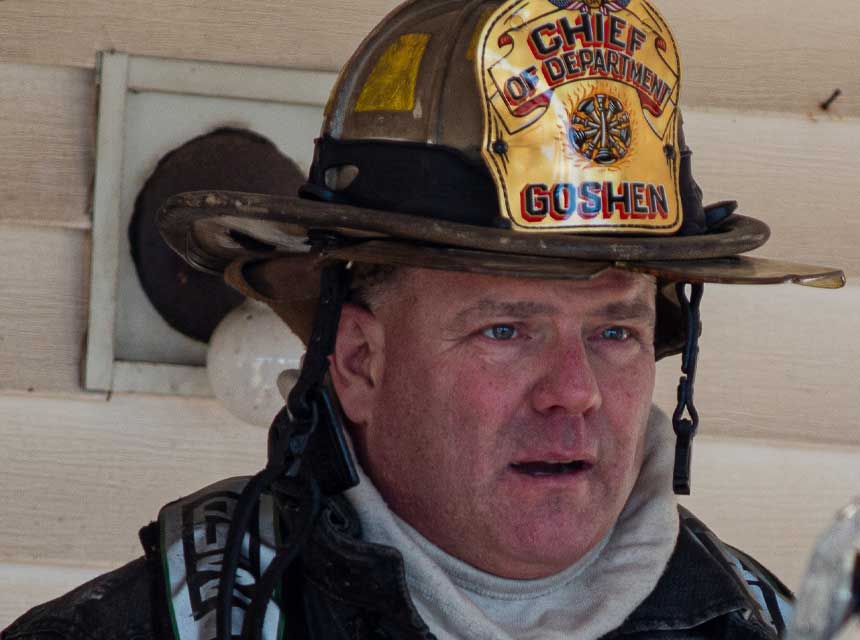
By Edward Myers
Most firefighters can tell you who their first company officer was, what they learned from him, or what they did or did not like about him. They can also tell you who their best and worst company officers were over the years. This leaves the company officers who were just okay and basically managed their way through the ranks to retirement and were easy to forget. The worst company officers had no expectations of themselves or their people. The mediocre officers maybe had an expectation of just getting through the shift unscathed by runs or the administration. Finally, you have successful company officers who were always up for a challenge and who have solid expectations for their crew. Their expectations are clear, concise, achievable, and usually have been vetted by countless successful officers over the years.
- Embrace Your Company as the Company Officer
- Firefighter Professionalism and Citizen Expectations
- Expectations and Leadership
- Expectations: A Tool for Leadership Success
Expectations are a vital part of leadership and leading by example. If company officers are going to set expectations for their crew, they must be willing and able to meet those expectations themselves. If you expect your crew to have their uniform squared away, you better be squared away. If that company officer expects his or her crew to have their engine or truck ready for work, that officer needs to know that particular apparatus inside and out and when it is truly ready for work. Leading by example and meeting the expectation go hand-in-hand. A true leader cannot expect what they do not represent. Firefighters are intelligent and will see through the smoke and shenanigans. All credibility will be lost for company officers who cannot meet or exceed their own expectations.
Many will ask the all-important question: What exactly is an expectation? An expectation is a standard of performance that is based on an essential function of the job, that is in turn based on legitimate job expectations and the expectation has a rational nexus (Dr. B. Crandell, 2019). Each officer and each fire department will have their own expectations of their people. Some will have no expectations of their crew or department, some will have a few simple expectations, and some will have very detailed expectations. The overall performance of a crew and the culture of an organization is directly related to these expectations. Crews and departments with no expectations can get lucky and have everything go right on a run and the stretch or search goes right. On the flip side, a solid crew or department can do everything right and still come up short, but that is part of life.
Where the rubber meets the road is when the crews are consistently failing or they are mediocre at best. This is where we see no real expectation of the members, which in a nutshell boils down to the lack of leadership. When the stretch is consistently short, search isn’t getting done, or your crew is consistently failing to get quick water on the fire, you are failing to meet the expectation of those we are sworn to protect. Successful crews and departments have one thing in common: they have set the expectations for their people and then they hold them accountable for those expectations. We should never hold our people accountable out of fear of being disciplined; a healthy culture will make them want to hold themselves accountable to both the citizens’ and the organizations’ expectations. Although there are many factors that come into play that can throw a wrench into any operation, a solid crew/organization with a good culture is consistently making the right decisions.
Many of these right decisions are based on expectations, which come in a variety of forms. First, the citizens have an expectation of the fire department to show up and solve their problem, be it a fire, medical call, a rescue…the list goes on and on. This expectation has continued to evolve since the birth of the American fire service 286 years ago. Meeting and exceeding the citizen’s expectations have made the fire service what it is today.
Next is the company officer’s expectations of a firefighter. These expectations should be laid out at the beginning of the officer/firefighter relationship. An expectation needs to be easy to perceive, interpret, and understand. The expectation also needs to be brief, but concise as to not overwhelm the employee with too much information. The third part of the expectation is that the expectation needs to be achievable. If an officer sets an expectation that is out of the reach of the firefighter, the expectation will never be met and the employee may get frustrated and give up altogether. When the employee falls short, not only is it frustrating for the employee, but the organization will suffer as well.
- The Crucial Need for Officer/Staff Meetings
- Command Presence: What Is It, and How Do You Develop It?
- A Strong Command Presence Is Essential in All Incidents
- Command Vitality
While it is important for the officers to have expectations of their crew, there also needs to be an understanding that the firefighters will have expectations of their company officer as well. It is important to ask firefighters what their expectations are of their officer. These expectations have to be reasonable as well, but should not overstep their place in the organization. Things like leading by example, having an all-in attitude, and being fair and consistent are just a few examples of what a firefighter’s expectations of an officer should be.
Finally, we have the chief’s expectations of the administrative/operational chiefs as well as his or her expectations of the company officers. These expectations should be similar, but there will also be more expectations because of their positions within the organization. As officers promotes up through the chain-of-command, they should have a good understanding of the organization’s expectations of each position that they have previously held. With each step comes more responsibility and even more expectations from both the organization and the boots-on-the-ground firefighters. Therefore, it is important to understand the basic expectations of the organization at each level. Without this foundation it can be easy to lose sight of the mission and forget where you came from early on in your career.
It’s critical to understand that expectations are a vital part of a successful organization. You do not need a never-ending list of expectations to cover every little detail. For example: Expectation #1: Be at work on-time and ready to work. This would mean to be early, get pass over from the outgoing member you are relieving, get your gear in order (self-contained breathing apparatus, mask, etc.), and ensure your tools and rig are ready to respond prior to the start of your shift. This is a basic expectation that encompasses multiple things. Your organization and its leadership need to determine what the expectation should be.
Another way to create buy-in is to have the troops help decide what the expectation should be at their level within the organization. Here at Goshen Township (OH) Fire and EMS, we asked everyone within the organization what they think the expectations should be at their level of responsibility. We then condensed the ones that were similar and developed our expectations from this list. This not only makes the members part of the process, but they also helped develop the standard by which they will be held accountable.
Expectations should be discussed and set with the employee at the very beginning of their tenure with your organization, with each promotion, and periodically reviewed with the members to keep them fresh in their mind. Expectations should be kept current and meet the needs of the organization. These expectations should also be tied to the employees’ periodic performance evaluations as well. Evaluating the members based on this list of expectations will only help strengthen and validate the entire process. It is our responsibility as officers, senior firefighters, and leaders to set the expectations and hold them and ourselves accountable for those expectations.

Edward Myers, MPA, CFO, is the chief of Goshen Township (OH) Fire and EMS. Previously he served as the deputy chief of operations for Goshen Township and prior to that he served with the City of Wilmington (OH) Fire Department as a lieutenant and shift supervisor. He has a bachelor’s degree in fire science and a master’s degree in public administration from Anna Maria College. He has been an FDIC HOT instructor and he currently leads the fire officer program at Sinclair Community College.

